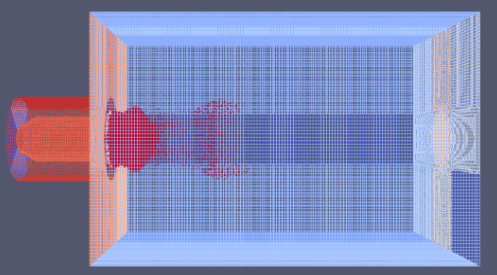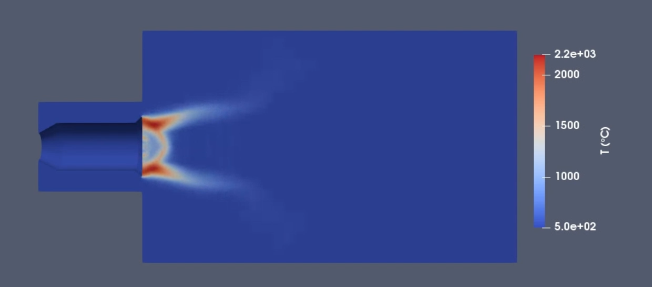
Figure 1

Figure 2

Team 55
Team Members |
Faculty Advisor |
Alex Hemchand |
Xinyu Zhao Sponsor UConn, Dr. Zhao |
sponsored by

Turbulent Combustion and Radiative Heat Transfer within Gas Turbine Combustors
This project investigates the role of radiative heat transfer in Rich-Burn, Quench-Mix, Lean-Burn (RQL) combustors using high-fidelity computational fluid dynamics (CFD) simulations and advanced radiation modeling. Historically, combustion models have primarily characterized heat transfer as predominantly convective, with radiation contributing only a small percentage. However, recent research suggests that radiative contributions may be significantly underestimated, particularly in modern gas turbine engines operating at higher temperatures and pressures. This discrepancy underscores the need for a more detailed analysis of radiative effects within RQL combustors. To address this, a model combustor was meshed, and a turbulent combustion and radiative heat transfer model was applied. Baseline reacting flow simulations were conducted within a simplified combustor geometry to validate simulation procedure and parameters against experimental data, as an experimental rig for the complex combustor geometry has yet to be constructed. High-quality meshes were then generated for the complex combustor geometry to support further analysis. Recent research indicates that radiative heat transfer may play a more significant role than traditional combustion models have typically accounted for. This validated simulation framework lays the groundwork for further investigation into the thermal effects within gas turbine engines.
